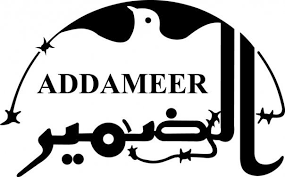
Corporate Complicity in Israeli Detention: G4S
G4S is the largest security company in the world, with operations in 125 countries. In 2007, G4S Israel signed a contract with the Israeli Prison Authority to provide security systems and services to all of the major Israeli prisons and detention centers. G4S currently services detention centers and prisons where Palestinians under administrative detention are held without charge or trial on six-month detention orders, renewable indefinitely.
Prisons & Detention Centers: G4S provides security systems to Ketziot, Damon and Meggido prisons, as well as the Russian Compound (Al-Moskobiyeh) and Kishon (Al-Jalameh) detention and interrogation centers. G4S is responsible for these facilities’ control and monitoring systems, in addition to visitation and CCTV systems. G4S also provides security systems and a central control room in Hasharon compound – Rimonim prison, which includes a wing for Palestinian political prisoners.
Complicity in Torture: Al-Moskobiyeh and Al-Jalameh centers, serviced by G4S, are renowned for their use of torture, including of children. For instance, in 2013, detainee Arafat Jaradat died as a result of torture endured at the hands of Israeli interrogators at Al-Jalameh. Loai Ashqar had three of his vertebrae broken due to torture sustained in Al-Jalameh in 2005, permanently paralyzing his left leg. Under Israeli military law, detainees can be held in interrogation for up to 60 days without access to a lawyer, effectively preventing appropriate checks on interrogation methods.
Military Courts: G4S installed and operates a central command room and peripheral defense system in Ofer Prison in the West Bank, which also houses the Israeli military courts that confirm administrative detention orders.
Administrative Detainees: All of the prisons and detention centers serviced by G4S have housed administrative detainees. As of August 2015, there are 350 Palestinians held in administrative detention, including 2 Palestinian Legislative Council members. Detainees are held in various G4S-secured detention centers and prisons including Ketziot, Ofer, and Megiddo.
Detention in the 1948 Territories: Ketziot, Megiddo, Al-Jalameh, Al-Moskobiyeh, and Hasharon-Rimonim are all located in the 1948 Territories (Israel). Holding political prisoners from the West Bank and Gaza in these prisons is illegal under international law, specifically Article 76 of the Fourth Geneva Convention, which prohibits the transfer of prisoners from occupied territories. This transfer, coupled with the restrictive permit system used by Israel, means that many detainees receive few, if any, family visits.
 |
Khalida Jarrar was arrested by Israeli occupation forces on the 2nd of April 2015. Khalida Jarrar is considered a major Palestinian political and civil society public figure. All of the charges against Jarrar revolve around her public political work. Khalida is currently held in HaSharon, an Israeli prison located in the 1948 Territories (Israel). The transfer of prisoners from the occupied West Bank and Gaza into Israel amounts to a violation of the Fourth Geneva Convention which states that “persons accused of offenses shall be detained in the occupied country.” G4S Israel has provided the entire security system and equipment for the central control room in Hasharon compound. According to Addameer prisoners held in prisons such as HaSharon are put in overcrowded cells, with lack of access to basic human needs such as hygiene, nutritious food and proper clothing and blankets. Furthermore, female prisoners are subjected to harsh conditions during their interrogation, including beatings, insults, threats, sexual harassment and humiliation by Israeli interrogators. |
| Charity worker Mazen Natsheh has been arrested and held in administrative detention repeatedly. He was held in Ketziot prison. He is a Masters student specializing in Educational Administration since 2002, but repeated detentions prevented him from completing his studies. Natsheh has not been informed of any charges or allegations against him. During his last arrest on 26th of August 2013, Mazen’s wife said: “When the release date is deliberately not announced by the prison authorities it gives us hope that his detention won’t be renewed, and yet in the early hours of the day he is to be released the detention order is renewed…The children often stay awake late… They can’t wait to see him, and it’s very hard for me to hide the details of Mazen’s detention from them… I don’t want to give them false hope, but I also do not want for them to get accustomed to the fact that their father may never leave the prison.” Mazen Natsheh has cumulatively spent nearly eleven years in administrative detention since 1994. His final release was on the 21st of April 2015. |
|
A call for action: Palestinian civil society organizations released a call for action in support of thousands of Palestinian prisoners who went on hunger strike in April 2012 to protest administrative detention, solitary confinement, and limitations on family visits. The call urged action to hold G4S accountable for complicity violations of international law and human rights violations in Israeli prisons and detention centers. The call is a part of the Palestinian campaign for Boycott, Divestment and Sanctions (BDS) against Israel.
Effectiveness of International Pressure: International BDS mobilization has caused G4S to lose contracts worth millions of dollars with universities, trade unions, public institutions and private companies around the world. Some highlights are (full list available online):
- Universities in Oslo and Bergen refused to give G4S contracts over its role in Israel’s prison system following student campaigns. In the UK, at least 5 student unions voted to cancel contracts with G4S, and students successfully pressured 2 other universities not to renew contracts with the company.
- Major charities in South Africa, the Netherlands and elsewhere terminated contracts with G4S.
- In June 2014, the Gates Foundation divested the whole of its $170m holding in the company as a result of an international campaign.
-
The US Methodist Church, the largest protestant church in the US, divested from G4S after coalition campaigning brought the issue to a vote.
G4S commits grave human rights violations across the world: Besides human rights abuses in Israeli prisons, G4S also has a dreadful track record of serious negligence and violent abuse in prisons it runs around the world:
- In the UK, G4S lost a contract for one of its multiple private prisons after evidence emerged of improper management of health care provision, suicide prevention and human rights protection. In South Africa, investigations exposed G4S security teams using electric shocks and forcible medical injections of anti-psychotic drugs at the Mangaung prison. In the United States, G4S operates juvenile detention facilities, provides infrastructure to track and confine formerly incarcerated people, and works alongside Homeland Security's Customs and Border Protection to detain and deport people across the U.S./Mexico border and to transfer immigrants to detention facilities across the country.
- G4S has also been implicated in labour rights violations at several of its global sites. Official complaints under OECD guidelines from G4S sites in Malawi, Mozambique and South Africa (and others) led to a G4S commitment to workers’ rights in 2008, but despite this, in the following years G4S was implicated in labour rights abuses in Uganda, South Korea, and South Africa, demonstrating that G4S cannot be trusted to maintain the fair conditions that it formally agrees to.
- G4S has furthermore been criticized for its responsibility for deaths in custody during deportation and immigrant detention. In one well-known case, Angolan national Jimmy Mubenga was suffocated to death by three G4S guards while being deported in 2010. In another case, a Kenyan national Eliud Nguli Nyenze died at a G4S removal center run by G4S, after he was refused medicine earlier in the day despite his complaints of severe pain. G4S received 1,497 complaints in three years regarding its human rights record in these deportation institutions.
G4S providing services to United Nations facilities and agencies: The UN Supplier Code of Conduct states “the UN expects its suppliers to support and respect the protection of internationally proclaimed human rights and to ensure that they are not complicit in human rights abuses”. The United Nations has a number of major contracts with the international security company G4S, providing services to UN facilities and agencies, in violation of the UN’s own guidelines. Many community organizations, trade unions, faith and student groups from around the world have urged the United Nations to apply its own principles and standards and to end its relationship with G4S due to its clear and active role in human rights abuses.
G4S is feeling the pressure from these powerful BDS campaigns: At its June 2014 annual general meeting, G4S chairman John Connolly told shareholders that G4S “did not expect to renew” its contract with the Israeli Prison Service, and mentioned 2017 as a possible date by which it would end its involvement in Israel’s prison system. However, G4S has not set out this commitment in writing and continues to profit from Israel’s abhorrent prison system. A company that commits serious human rights abuses cannot be trusted to keep its word. Campaign pressure against G4S must continue until it entirely ends its role with the Israel Prison Service and all aspect of Israel’s apartheid regime!
*All statistics sourced from Addameer.org, CorporateWatch.org, and WhoProfits.org
